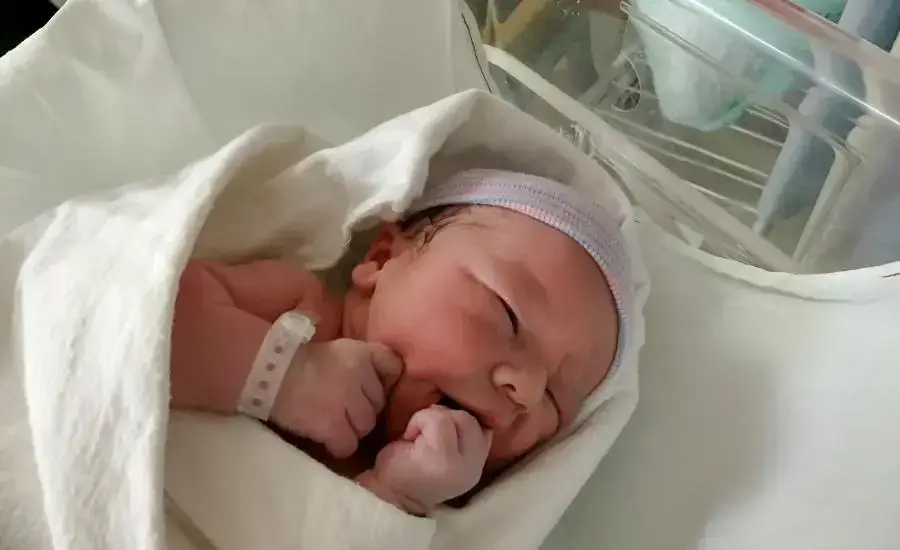
A clinched fist is one of the newborn reactions you will observe in the weeks after your child’s birth. However, this fist-clenching is a natural newborn response, one of numerous movements that contribute to the development of your kid’s future fine motor abilities. Here is more information about why your baby clenches their fists and other common newborn actions.
As your newborn learns to adapt to his or her new environment, you may be shocked (or even startled) by how your child reacts to sights, noises, and sensations. Keep in mind, though, that your baby is making a big change from their previous environment in the dark and cozy womb. As a result, their entrance into the world is accompanied by a number of physiological changes.
A firmly clinched fist or two will be one of the visible reactions. You may induce this primordial movement, also known as the palmar grab, by lightly caressing your infant’s open palm with your finger. Your infant’s fist will immediately close in reaction. This is one of numerous involuntary movements that young infants exhibit. Other examples
This crucial reaction begins at birth and enables your infant to locate the nip you offer. When you touch your baby’s cheek, they will turn their head toward the breast or bottle, showing that it works.
Even before birth, infants are already learning how to nurse. You and your infant will hone this tendency to suck on whatever is placed in their mouth over the course of several feedings in the first few weeks.
This reaction, also known as the startle response, is present at birth and causes your infant to flail their arms when startled by a bright light, loud noise, or even the sense of falling.
Tonic neck reaction This one is humorous since it appears like your baby is saying “en garde!” The infant’s head rotates to one side, and the arm on the same side straightens out while the opposite arm bends, as if brandishing a sword and jousting.
Your baby’s clenched fists are a neurologic reaction that occurs as his or her nervous system continues to mature. Your infant’s firmly clenched fists, as well as their bent elbows, limbs, and legs, are also vestiges of their time spent in gestation curled into a tight fetal ball. Also, babies who are hungry will clench their hands. If your baby has colic, you should watch for this same behavior.
This response often disappears on its own between five and six months of age, so you do not need to instruct your infant to relax a clenched fist. If your infant is clenching his or her fists due to stress or colic, try swaddling, singing, and shushing to calm him or her. Of course, if it is time for feeding, provide the breast or bottle. As soon as you begin, their hands should relax and open up.
You may experiment with the palmar grasp by inserting your finger into your infant’s hand and seeing how it closes (you’ll be amazed at how firm their hold is!). A comparable action, known as the plantar grip, happens in newborn feet. Touch the sole and see the toes as they curl inward.
It is common to occasionally worry about your baby’s growth or to compare their progress to that of other newborns in your family or social network. Keep in mind, though, that at your baby’s regular checkups, a doctor or nurse will look at each response to make sure it works well with different stimuli.
However, if you or your baby’s healthcare professional notice that a specific response, such as clinched fists, persists for longer than usual, it may indicate an issue with your baby’s neurological system. Rarely, excessive reflexes may indicate cerebral palsy or hypertonia, which is a condition characterized by rigid muscular tone. You can always talk to your child’s doctor if you have questions or concerns about your baby’s reflexes or growth.
Leave a comment